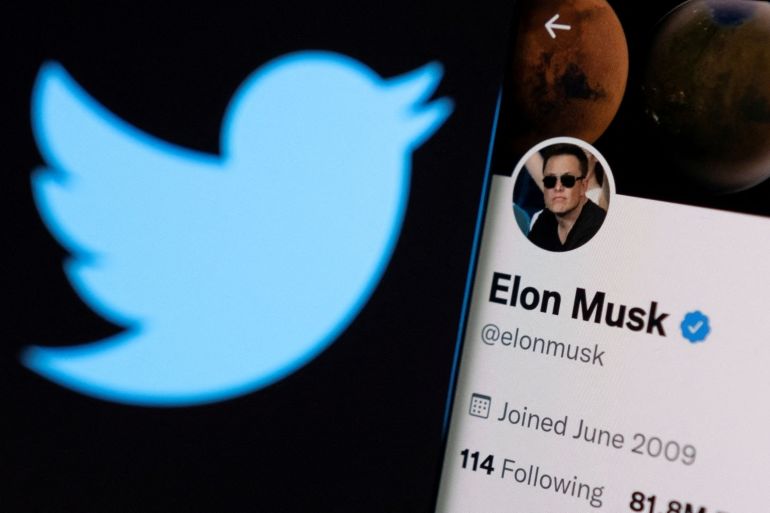We need Twitter guardrails that protect lives and free speech
Freedom of expression and user agency do not exist without safety and protection online.

As one of the millions of Egyptians who took to the streets demanding “Bread, Freedom, and Social Justice” during the Arab Spring, I experienced firsthand the very best and the worst that Twitter has to offer.
When the government took control of the media, shut down the internet, and cracked down on dissent, we the people found refuge on Twitter to plan protests, notify protesters of changing routes and safe locations, and keep a record of people who were arrested or killed. But just as the government unleashed security forces to physically attack us in Tahrir Square, so too they came after us online, launching a coordinated wave of abuse and disinformation to intimidate and silence journalists and activists.
Keep reading
list of 4 itemsUS Senate passes bill to force sale of TikTok, sending it to Biden
‘Arrogant billionaire’: Australia, Musk in war of words over censorship
EU threatens to suspend TikTok Lite app’s rewards feature
What we naively considered a safe space on Twitter turned into a nightmare of coordinated harassment and disinformation. The constant threat and the level of anxiety and fear dictatorial regimes inflict on anyone who opposes them lead many people to self-censor or leave the journalism profession.
Like so many journalists and human rights defenders, I am deeply concerned about Elon Musk’s potential takeover of Twitter. When Musk describes social media as a “digital town square” for public debate and asserts that “Free speech is the bedrock of a functioning democracy”, who could disagree? I have risked my life to freely express my demand for human rights and advocate for democracy. Today, as an exile in the United States, I work for the free speech advocacy organisation PEN America to keep writers and journalists safe online and off.
Musk’s understanding of free speech implies that the playing field is level and that we are all treated equally and safely online, which is why I can say with absolute certainty that getting rid of all guardrails on Twitter – including meaningful content moderation policies and processes – wilfully ignores the ways in which rampant online abuse chills free expression.
People are targeted not only for what they say online but often simply for being outspoken members of a particular group – for their race, their faith, their gender identity, their sexual orientation, and their disability. If women and minorities, reporters and human rights defenders are pushed off digital platforms because of severe and constant abuse, then public debates are left to the most privileged few with the loudest voices. If Twitter is where “matters vital to the future of humanity are debated,” the question is who matters in these debates.
If Elon Musk is serious about making Twitter a safe haven for free speech for all, he needs to remember that social media is a critical tool used by journalists, dissidents, and activists around the world to speak truth to power. And those in power cynically deploy coordinated harassment and disinformation campaigns to undermine the free press and de-platform dissent.
Over the course of its history, Twitter has prioritised American and English-speaking users over the safety of Black and brown people and others from marginalised communities globally. The platform has been exceedingly slow to put meaningful policies and features in place to better protect its most vulnerable users. After a decade of tireless advocacy from civil society and activists, Twitter has finally started to make progress in recent years to address abuse and disinformation. But there is still much work to be done, including: giving people the option to filter the abusive content they receive so they can review and address it later, with the help of trusted allied individuals; making it easier to document online abuse; making it easier for people to separate their personal and professional identities online and allow them to control their privacy settings accordingly.
When voices are silenced and speech is chilled, public discourse suffers. Freedom of expression and user agency do not exist without safety and protection online. By reducing the harmful effect of online harassment, platforms like Twitter, Facebook, and Instagram can ensure that social media becomes more open and equitable for all users.
The views expressed in this article are the author’s own and do not necessarily reflect Al Jazeera’s editorial stance.
